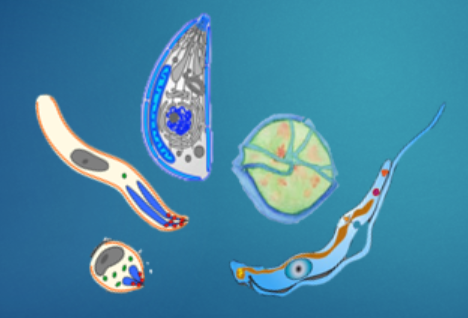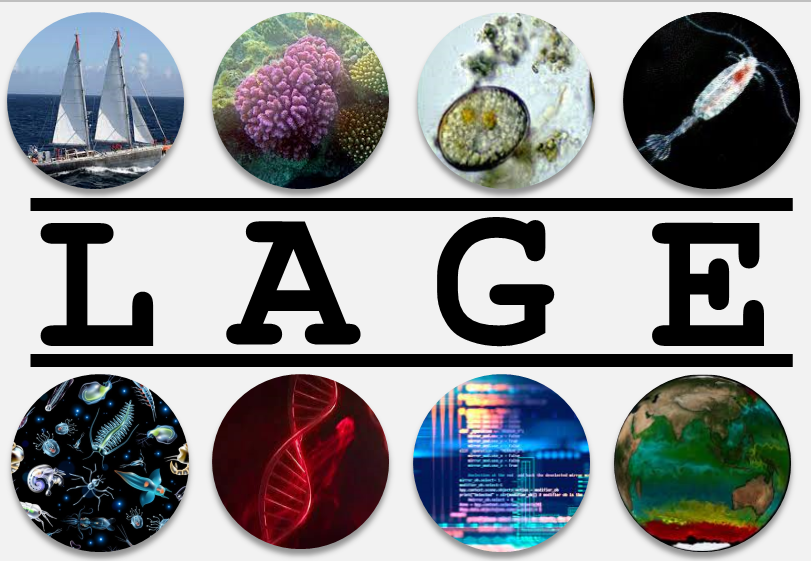I'm a senior scientist working in environmental genomics, with long experience in bridging the gap between genomic dynamics and functional traits. For several years, I have explored the biodiversity of eukaryotic organisms by analysing their genomes, and thus contributing to the global study of the eukaryotic Tree of Life.
No species lives in total isolation from others; on the contrary, these associations are crucial to the balance of ecosystems. Among these association parasitism is one of the most successful forms of living on earth, and a leading source of evolutionary pressure for hosts and parasites both. The emergence of parasitism has taken place repeatedly across the tree of life, following several parallel routes in some phyla, and leading frequently to reductions in genome size and at times even in the number of genes originally present in the common ancestral genetic repertoire. Parasite-host interdependence (and the associated environmental pressure) has gradually molded parasite genomes, leading them to evolve into increasingly specialized and host-dependent forms.
Wet-lab parasitologist by formation, I'm passionate about pathogens and parasites. Currently, my research is aimed at understanding the interactions between genomes and the environment, and in particular between parasites and their hosts, in an attempt to characterize the molecular events that have led to the gradual transition from an extracellular to an intracellular lifestyle, with increasingly complex life cycles and greater pathogenicity..
Major current research projects
Parasitic-lifestyle in marine ecosystems
The effectors involved in host-parasite interaction have been studied mainly for intracellular vertebrate parasites responsible for human and veterinary diseases for many decades BUT … an important part of the drivers of genetic diversity, allowing a better understanding of the transition from a free-living stage to parasitic life, remains to be discovered in very poorly represented ecological niches, such as the planktonic community.

Many questions remain unsolved : which are the evolutionary constraints orienting a protist towards parasitism? Has this process evolved independently in each lineage or, conversely, is it possible to identify "parasite-state signatures"? Today I'm looking for « signatures of parasitic life-style » within the marine biodiversity by mining the eukaryotic component of the plankton through meta-“omics” approaches using those already characterized in reference organisms,. The combination of gene-, genome-,and community-centric approaches will not only allow the identification of possible 'parasitic lifestyle markers' for each of these taxa, but also the understanding of their functioning and their integration into global biogeochemical patterns. This will potentially lead, among other things, to the identification of effectors among eukaryotic metagenomic/metatranscriptomic data without reliable taxonomic assignments, and will thus shed new light on organisms and/or branches of the tree of life that are currently poorly characterized or understudied.
Specialists or generalists ? : questions around host-parasite interactions
The strong environmental fluctuations of planktonic ecosystems and the rapid changes that characterize their microbial communities (with successions of different dominant species over short time-scales) would lead in theorie to the natural selection of generalist parasites over specialists. An intriguing paradox, therefore, is the persistence and ecological success of specialists among marine planktonic parasites.
What environmental factors influence a species' level of specialization? is one of the questions we are working on using omics- approaches.
Past experiences
| 2022 - ... | Research Director Identification and functional characterization of "parasite lifestyle signatures" in marine biodiversity |
| 2014 - 2022 | Senior Scientist Environmental genomics (host - parasite interactions) |
| 2001 - 2014 | Scientist - Transcriptome annotation as a tool for eukaryotic genome annotation - Biocuration and community annotation of eukaryotic genomes |
| 1999 - 2001 | Post-doctoral position (CNRS FRE 2376 – GENEXPRESS, Villejuif, France) Bioinformatics analysis of large collections of full-length human cDNA sequences |
| 1996 - 1998 | Guest researcher (Department of Medical Genetics, Biomedical Centre (BMC), Uppsala, Sweden) Sequencing and physical mapping of the Trypanosoma cruzi genome |
| 1993 - 1996 | PhD thesis (Universidad de Buenos Aires Facultad de Ciencias Exactas y Naturales: Buenos Aires, AR) Caractérisation moléculaire des gènes codant pour une protéine flageller de Trypanosoma cruzi, fortement conservé parmi les parasites trypanosomatides. Director : Andrés Ruiz, (National Institute of Parasitology "Dr. Mario Fatala Chaben") |





